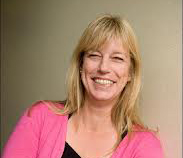Is Byron Bay A Myth Or A Strawberry?
By Susannah Freymark
That day in the Bay I hadn’t bumped into anyone I knew. It was busy and bustling with the faces of strangers, no one said hello.
By chance, a friend phoned and told me about a Buddhist talk on enlightenment at Byron Bay High School that evening. There they were — the locals, more than three hundred of them on plastic chairs in the cavernous auditorium.
People I hadn’t seen for ages, from across the shire waiting to hear Dzongsar Khyentse Rinpoche speak about Bodhichitta.
I didn’t even know what Bodhichitta meant; it sounded like something I’d order with extra cheese at an Italian restaurant.
Rinpoche was a familiar figure; I’d seen The Cup, a film about his life screened at the Byron Buddhist Film Festival last year.
Dressed in bright yellow and red robes, he sat on a cane chair on a small platform in front of the stage.
He looked like he was laughing as he sat very still and gazed at the sea of faces in front of him.
Byron Bay, he said, is the capital of happiness, but happiness is not the issue, he was quick to state.
‘When we look for happiness we are looking for the thrill or suspense of happiness. ‘If you aim to be happy, let’s say you get it, let’s say it stays there forever with you, it would become boring, it wouldn’t make you happy.
It is like shopping. Window shopping is good but once you get it, the happiness is over. Happiness needs a thrill, it needs fluctuation.’
I sat upright as if it would help me hear his words more clearly.
‘Buddhism is not about happiness,’ he continued. ‘It was never meant for that, it is about understanding truth. If you understand the impermanence of everything you will not cling or be disappointed or be hopeful, that is the release.’
Here was the main message of the evening, he said. ‘All compounded things are impermanent. Do not shop as if you will live for 1000 years.’
I laughed until he emphasised this point.‘This ONE truth alone will do the job.’
Serious stuff. ‘If you change your attitude to the way you do things you will become relaxed. This is the liberation from everything. This is Bodhichitta.‘
’Is Byron Bay a myth? he asked. ‘If we can understand the impermanence of Byron Bay, if we know that one day all that we hold dear or cling to could become a myth, the Byron of today could be a bone or souvenir that is found on the beach in future years.
‘The people of Byron Bay are looking”, he said. “It is a community that is soul searching.”
‘Through compassion, love and kindness we can achieve Relative Bodhichitta. Although it is Ultimate Bodhichitta we are really seeking’, he emphasised. I was confused.
Rinpoche rubbed his hands across his bald head, back and forth as if he was in the shower washing his hair. ‘Do you want to be happy?’ he asked us.
More upright bodies, heads raised. Yes. Yes. Yes.
‘Then make others happy. All beings want to be happy and don’t want to suffer. This feels feasible, we can begin with that.
Trying to heal others who you think have a problem, this is a small time glory and you realise that you yourself are a victim. You have ignored the understanding of truth.
When you practise Bodhichitta nothing changes — all that changes is that you have no fear.’
Life can be explained, Rinpoche said, with strawberries — just three of them.
‘This is our life. You put a strawberry on top of the first one; it falls — you struggle. Unfortunately it sometimes stays; this gives you the hope that it will stay.
You don’t stop. You try to put the third one on top.
You look at your watch and you are ninety-eight years old, you have missed out on all the fun, you have been too busy balancing the strawberries. You missed the sunsets and other things.’
The audience laughed at this metaphor. Rinpoche laughed with us. He scooped a green grape from the small bowl on the side table next to his chair and invited questions from the audience.
They were beauties.‘Are you a magician?’ (a child asked) ‘How much truth do people really want to know?’ ‘Why is enlightenment so frightening?’ ‘What can I do?’ ‘How can I remind myself of the impermanence?’
I liked his answer to this one. ‘Meditate for a few moments each day. Breathe out and think. And don’t breathe in. Then breathe in and think WOW!’ Sound advice. I don’t recall how long he spoke for, it seemed like only ten minutes.
He left us with a reminder, ‘In Buddhism you do not gain, you lose everything. All our dirt is washable. Our negatives are removable. Removing this is enlightenment. Buddhism is the path of undoing.’
He rubbed his head again before breaking pink petals from the bunch of lilies next to him. He ripped them into small pieces, chanted and threw the bits of flower into the air above his head. Just for the fun of it, he said.
He left the stage while I sat there in the empty row of mustard coloured chairs trying to decide which strawberry I was attempting to balance.
Was it the second or third one? But that too, like Byron Bay, like this magazine, like me, is just a myth.
Originally published in Here & Now magazine, 2005
Leave your comment about Is Byron Bay A Myth Or A Strawberry? or share with your friends on Facebook

Leave a Reply